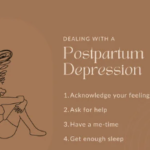In this cruel world, individuals are always overwhelmed by stress, anxiety, and depression thanks to our fast-paced era. This can significantly affect your mental health as well as your general well-being. If you feel emotionally unwell, therapy could just be the answer.
If you’ve ever considered going to therapy, you may have wondered if it’s worth the effort. However, fear not! In this article, we’ll explore how therapy enhances overall wellness. You’ll learn about holistic wellness benefits and effective wellness programs, and you’ll also learn how wellness coaching can assist you in easily maintaining good mental health.
14 Ways Therapy Enhances Your Mental Wellness
- Discovering Self-Awareness
Therapy has the advantage of providing self-reflection and awareness. In-depth conversations with a trained counselor will help you acquire a greater sense of your thoughts, emotions, and actions. Psychotherapy does this by peeling one’s outer layers to show patterns, triggers, and mental illnesses such as post-traumatic stress disorder (PTSD), bipolar disorder, and chronic depression, which contribute to distress.
Thanks to this, having newfound self-awareness becomes instrumental in personal growth and improvement, thereby giving you the power to create positive changes in your life and develop healthier coping mechanisms.
- Unveiling Emotional Insights
Emotions are often difficult to understand because they are multi-dimensional. These feelings can be better explored in therapy sessions that provide safe havens without condemnation. A qualified therapist helps you recognize feelings so that you may express them, hence demystifying the emotional reactions in your life.
The path to recovery starts with understanding why we feel what we feel; it enables us to heal our emotional wounds, improve our internal conflicts, and successfully address life’s challenges as they come our way.
- Developing Coping Strategies
Life is filled with ups and downs, sometimes leaving us feeling overwhelmed and ill-equipped for stress. Mental health therapy offers coping strategies that work best for each person. Therapists teach relaxation techniques, problem-solving skills and healthy communication styles. With these strategies, individuals can be enabled to deal with stress effectively, resolve conflicts and handle their emotional challenges. The building of coping mechanisms through psychotherapy fostering mental resilience enables individuals to confront life’s struggles better and also mental illness.
- Challenging Negative Thoughts And Beliefs
Negative thought patterns, as well as self-limiting beliefs, can have a huge impact on one’s mental health and overall well-being. Face-to-face or online therapy aims to challenge such negative thinking, which will then breed positive adaptive thinking instead.
Psychodynamic psychotherapy or cognitive-behavioral therapy (CBT) are some of the techniques used by therapists to help people identify distortions in thinking and consider alternative viewpoints. These therapies, therefore, involve questioning pessimistic thoughts so that they cause people to develop empathy for themselves and improve self-esteem, thus promoting an optimistic approach toward life.
- Healing Wounds and Trauma
Simply searching for “mental health therapy near me” can bring a sea of change to people who have gone through painful events in life. Experts in the field use treatments that are based on facts which include trauma-focused treatment, eye movement desensitization and reprocessing (EMDR), and talking therapy. Emotional recovery is supported through therapeutic procedures that help to address emotional scars caused by traumatic events, thus enabling one to regain control of one’s life.
- Strengthening Relationships
Our relationships very much influence mental health. There are couples counseling or family counseling where people can talk openly on neutral grounds. Such therapies enable individuals to communicate freely with each other, resolve conflicts, and build better bonds with each other. Talking therapy improves bonding, among other aspects of relations, through teaching individuals communication skills, enhancing understanding, and working out underlying problems, therefore promoting mental wellness in relationships.
- The Transformative Journey of Therapy
Therapy is a self-revelatory, healing, and developmental transformative journey. Through therapy, clients can attain self-awareness, emotional understanding, coping skills, and cognition reformation that will enable them to build upon increased levels of life satisfaction and conquer their mental health challenges. Additionally, therapy is crucial in healing trauma and reinforcing relationships, helping individuals regain control over their emotions and enabling them to have better relationships with others.
- Take the First Step
Therapy is an evolutionary trip to improved lives. It starts with awareness about oneself and emotional intelligence, followed by coping strategies against negative thoughts, leading to a more rewarding existence. The therapy stage helps in recovery from traumatic experiences and enables people to take charge of their emotional state. By agreeing to see a therapist, you are making a courageous step toward self-improvement and total wellness.
- A Safe and Judgment-Free Zone
People go to therapy as a place where they can say anything without reprisal or prejudice. The client finds a space where he/she does not feel judged or condemned by his/her counselor, thus helping with emotional maturation and growth.
- Improved Coping Mechanisms
Psychotherapy is aimed at providing individuals with new coping techniques on how to deal with life challenges. During these instances, seeking professional support will help you in developing healthy ways of managing such emotions as stress, anxiety; hence making you resilient under tough circumstances.
- Identifying Underlying Issues
During treatment sessions, it is possible to uncover underlying issues that lead to one’s mental distress. Identifying the root causes of your problems enables targeted interventions as well as healing and results in permanent improvements with mental health.
- Improved Awareness
This self-awareness is enhanced by therapy encouraging reflection and introspection. Having an understanding of your thoughts, behaviors and emotions can bring forth positive changes and help you become more connected to yourself.
- Manage Trauma and PTSD
For people who have trauma in their past or live with post-traumatic stress disorder, counseling takes a specialized approach to recovery. Therapeutic measures like EMDR (Eye Movement Desensitization and Reprocessing) can greatly lessen the effects of traumatic experiences.
- Dealing with Unhealthy Patterns
The therapy aids individuals to realize and break down patterns of cognitive distortions and unhealthy behaviors. This is done through challenging negative beliefs while substituting them with positive ones.
Conclusion
If you are thinking of getting therapy, finding the correct therapist is important. For instance, if it is individual therapy, couples therapy or specialized trauma therapy that you are in need of, look out for mental health clinicians who are certified. We offer wellness coaching and wellness programs provided by licensed professionals. Call us today for mental wellbeing support as you embark on the path towards mental wellbeing. Do not forget, joyfulness, hardiness and a sound mind are what you rightfully deserve.



















